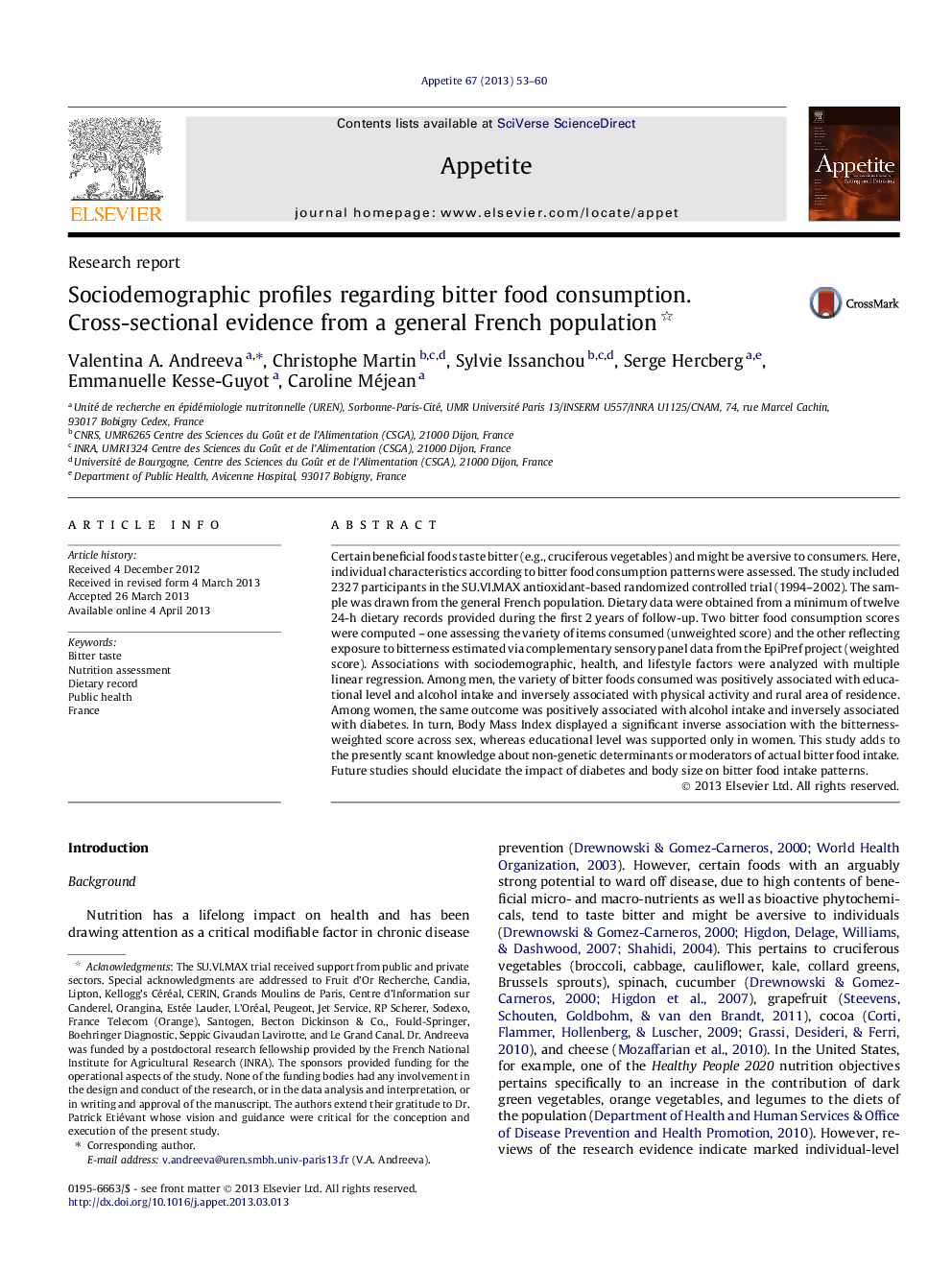| Article ID | Journal | Published Year | Pages | File Type |
|---|---|---|---|---|
| 939709 | Appetite | 2013 | 8 Pages |
•Non-genetic determinants or moderators of bitter food intake are sex-specific.•Education, alcohol use, physical activity, rural area predicted bitter food intake variety in men.•Alcohol use, diabetes predicted bitter food intake variety in women.
Certain beneficial foods taste bitter (e.g., cruciferous vegetables) and might be aversive to consumers. Here, individual characteristics according to bitter food consumption patterns were assessed. The study included 2327 participants in the SU.VI.MAX antioxidant-based randomized controlled trial (1994–2002). The sample was drawn from the general French population. Dietary data were obtained from a minimum of twelve 24-h dietary records provided during the first 2 years of follow-up. Two bitter food consumption scores were computed – one assessing the variety of items consumed (unweighted score) and the other reflecting exposure to bitterness estimated via complementary sensory panel data from the EpiPref project (weighted score). Associations with sociodemographic, health, and lifestyle factors were analyzed with multiple linear regression. Among men, the variety of bitter foods consumed was positively associated with educational level and alcohol intake and inversely associated with physical activity and rural area of residence. Among women, the same outcome was positively associated with alcohol intake and inversely associated with diabetes. In turn, Body Mass Index displayed a significant inverse association with the bitterness-weighted score across sex, whereas educational level was supported only in women. This study adds to the presently scant knowledge about non-genetic determinants or moderators of actual bitter food intake. Future studies should elucidate the impact of diabetes and body size on bitter food intake patterns.
